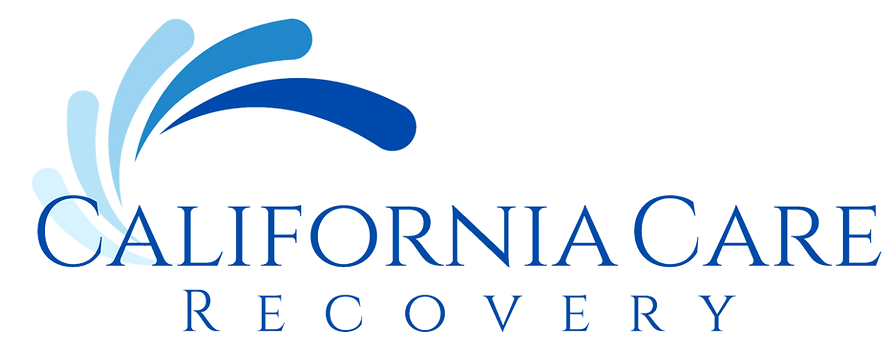Growing up with a parent addicted to alcohol means navigating a world that many others can’t understand. A childhood defined by chaos, inconsistency, and unpredictability often becomes your norm, where walking on eggshells or taking on adult responsibilities feels like a part of daily life. Your sense of self is drawn from a complicated past filled with challenges many children are never exposed to. This unique and difficult upbringing shapes individuals in profound ways, leading to a common set of traits and struggles recognized within a specific group: adult children of alcoholics (ACOA).
The impact of an alcoholic parent is not just a collection of bad memories; it becomes woven into the fabric of your adult life, often transforming your ability to form healthy relationships, trust others, and understand your own worth. As a child, you may not have realized your family situation was different or problematic. However, as you grow up and need to fulfill certain needs—building a career, forming intimate partnerships, or raising your own children—the coping mechanisms you developed to survive can begin to catch up with you.
You might find yourself struggling with a constant need for approval, an intense fear of abandonment, difficulty setting boundaries, or a tendency to be overly responsible for others’ happiness. These are not character flaws; they are learned survival responses. Understanding the common experiences of adult children of alcoholics is the first, powerful step toward healing these patterns, breaking the cycle, and building the fulfilling, stable life you deserve.
How Being a Child of Alcoholism Affects You

Having dysfunctional familial relationships as a child leads you to project your past on your present. You may seek out relationships similar to what you’re used to, even if harmful.
The International Journal of Behavioral Consultation and Therapy says, “Growing up in an alcoholic home does not necessarily mean an individual will develop problems, but it does serve as a very real and significant risk factor.”
That is to say, being a child of an alcoholic is not a road to failure or destruction. Still, the intensity of childhood trauma or problems can significantly affect your adulthood.
The lack of a positive adult example as a child, emotional preparedness, and the ability to form healthy relationships can increase the difficulty of balancing life. For many, handling those challenges means turning to alcohol as an unhealthy coping mechanism.
Being an adult child of an alcoholic (ACOA), you may notice certain parts of life seem harder for you than your peers. Being susceptible to alcoholism yourself is only one common characteristic of ACOAs.
Characteristics of Adult Children of Alcoholics
Whether you experience the other impacts of being an ACOA or not, understanding that things are caused by something out of your control can reduce any shame or guilt you might have due to these struggles:
#1. Isolation: Because ACOAs don’t know how to cope with stress or struggles, they may pull away from others. They don’t feel others understand them. Instead, they may expect special treatment during stressful times.
#2. Difficulty completing tasks: Committing to an event or following through on a promise is common for ACOAs. They often over-promise to take care of others but struggle to live up to them.
#3. Inability to be part of a healthy relationship: ACOAs often remain in unhealthy relationships for an extended amount of time. They will do anything to keep a relationship, no matter how harmful. This is due to a need for approval from others and being attracted to people with compulsive personalities.
#4. Lack of responsibility: Many ACOAs views themselves as the victim. When their behaviors lead to consequences, someone else is always to blame. They provide a lot of excuses and can struggle to maintain everyday functions like housework or a job.
#5. Extreme discomfort with lack of control: Overreacting to change, especially change outside of their control is very common. Instead of processing or looking at the positive side, ACOAs will often react with heightened emotions and struggle to accept change.
#6. Judgmental behavior: Many ACOAs are judgmental. They judge those around them for their tastes, behaviors, and most importantly, they judge themselves. They can be harsh critics, leading to difficulty finding happiness or fulfillment.
#7. Need for approval: ACOAs grow up with a lack of attention, so as adults, they often crave the approval of others. They will be susceptible to criticisms from friends, partners, bosses, or strangers. They can be very defensive or upset by even the slightest unflattering comment.
#8. Low self-esteem: Without a healthy upbringing, self-esteem can become lacking and lead to many other issues in life. When you don’t have faith in yourself, you put other people’s wants and needs ahead of your own. Low self-esteem can lead to self-neglect and even symptoms of addiction without actually using any substances.
#9. Suffer from alcoholism, or engage in serious relationships with alcoholics: ACOAs can mimic the behavior they observed growing up or grasp onto people with similar traits. It is a type of dysfunctional comfort or addiction to dysfunction. ACOAs are at risk of alcoholism from genetics and their environment. Even though they know how devasting alcoholism can be, these problems are just as likely.
Of course. Here is a new section that can be added to the end of the blog post, tailored to explain how California Care Recovery can help. This new section can replace the existing “How to Overcome This Impact” section to create a more direct and branded call to action.
Breaking the Cycle: How California Care Recovery Can Help
Recognizing how your past has shaped your present is a courageous first step. If the patterns of being an adult child of an alcoholic have contributed to a struggle with alcohol use for you or someone you love, know that healing is possible. At California Care Recovery, we specialize in treating the individual, with a profound understanding of how childhood experiences impact addiction.
Our approach to alcohol rehab is built on addressing the root causes. Many adult children of alcoholics develop co-occurring mental health conditions like anxiety, depression, or PTSD as a result of their upbringing. Our dedicated dual diagnosis program is designed to treat these underlying issues simultaneously with the alcohol use disorder. We believe that for recovery to be sustainable, you must heal the source of the pain, not just manage the symptoms.
Through personalized, one-on-one therapy sessions, our compassionate clinicians help you safely unpack these complex dynamics. We use evidence-based approaches like Cognitive Behavioral Therapy (CBT) to help you challenge the harsh inner critic, rebuild self-esteem, and develop the healthy coping mechanisms you deserve. Because addiction impacts the entire family, we also offer family counseling to help mend relationships, establish healthy boundaries, and create a supportive home environment for long-term well-being.
The cycle can end with you. If you are ready to build a new future defined by stability, self-worth, and sobriety, our team is here to help. Contact California Care Recovery today to learn more about our compassionate and effective alcohol rehab programs.
How to Overcome This Impact

Acknowledging the challenges you face due to your childhood experiences can encourage you to seek help. Many adult children of alcoholics find great comfort in professional treatment or counseling. Although bringing up complicated feelings and memories from the past can be triggering, the more awareness you gain, the more you can do to overcome anything holding you back.
Being a child of an alcoholic is not easy when you’re growing up, nor does it get any easier once you’re an adult. The problems adult children of alcoholics (ACOA) face throughout their lives because of their past can be immobilizing and even harmful. Understanding the impact your childhood has on your present opens your eyes to what’s causing your current troubles. Analyzing and reexamining memories and feelings from your past can help you face things you may have never dealt with. Working with a professional or therapist to unwind your history can offer you clarity moving forward.
You can learn healthy coping mechanisms for stress, ways to build sustainable and happy relationships and improve your self-esteem. Being an ACOA is not just something you have to accept for what it is. Reach out for guidance and rewrite your future today. Call California Detox & Treatment Center at (949) 281-0632 or send us a message today!
